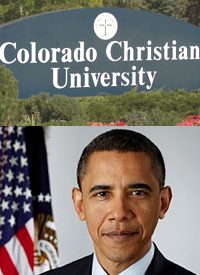
A broad coalition of non-Catholic Christians as well as Jews has sent President Obama a letter protesting the new and narrower definition of “religious employer” for purposes of the exemption of the ObamaCare contraceptives mandate. Among the variety of organizations signing the letter were colleges, rescue missions, and religious schools — all of which would be required, under the definition now used by the Obama administration, to provide not only birth control but also abortifacient (abortion-inducing) drugs and sterilizations without a co-payment.
One of the intentions of the groups that sent the letter was to make clear that although Catholic organizations had first raised concern about the new interpretation, devout non-Catholic Christians as well as faithful Jews also broadly objected to the intended definition of “religious employer." The letter to the President stated:
If one were to believe what the media reports and what some Democratic legislators say about the HHS mandate, it was only Catholics who had a problem with the contraceptive mandate. We write to you specifically as organizations and leaders that are not part of the Catholic community. We write not in opposition to Catholic leaders and organizations; rather, we write in solidarity, but separately — to stress that religious organizations and leaders of other faiths are also deeply troubled by and opposed to the mandate and the narrow exemption.
We write to express our deep concern about the contraceptives mandate in the health insurance regulations, and about the “religious employer” exemption that is so narrow that it does not protect most faith-based organizations.
Most press reports on the controversy concerning the contraceptives mandate portray the opposition as coming only from the Catholic Church and Catholic organizations. But this is wrong. It is emphatically not only Catholics who deeply object to the requirement that health plans they purchase must provide coverage of contraceptives that include some that are abortifacients. It is not only Catholics who object to the narrow exemption that protects only seminaries and a few churches, but not churches with a social outreach and other faith-based organizations that serve the poor and needy broadly providing help that goes beyond worship and prayer.
The very narrow “religious employer” definition would mean that a church or a synagogue might be considered a religious employer, but a school, a college, a relief organization or a similar group which professed a particular religious identification but which was not explicitly controlled by or part of a church or synagogue would not be entitled to the “religious employer” exemption. Patrick Reilly of the Capital Research Center pointed out that this rule “… excludes any religious entity that is not a church or legally owned by a church body. Many of America's most important faith-based charities, schools, hospitals, membership institutions and other groups are legally independent despite a clearly religious mission."
Colorado Christian University, a nondenominational college, has recently joined Belmont Abbey College, a private Catholic institution, in a federal lawsuit against the narrow definition of “religious employer.” The Becket Fund for Religious Liberty is representing both colleges. At issue in the lawsuit are First Amendment rights of free expression and freedom of conscience.
Hannah Smith, senior legal counsel at the Becket Fund, told the Christian Post that the freedom of conscience objection is " … not just a Catholic issue. It affects religious organizations across the spectrum.”
Perhaps even more difficult will be the position in which the narrower definition of "religious employer" places the federal Department of Health and Human Services. It would appear that under the new regulations, HHS would have to determine which groups were “religious” and which were not. Moreover, because so many hospitals and charitable organizations which provide services to Americans are formally connected in some way to Christian or Jewish philanthropy, the sort of narrower definition may lead to an actual reduction in health care providers, just when a shortage of doctors is already looming.



